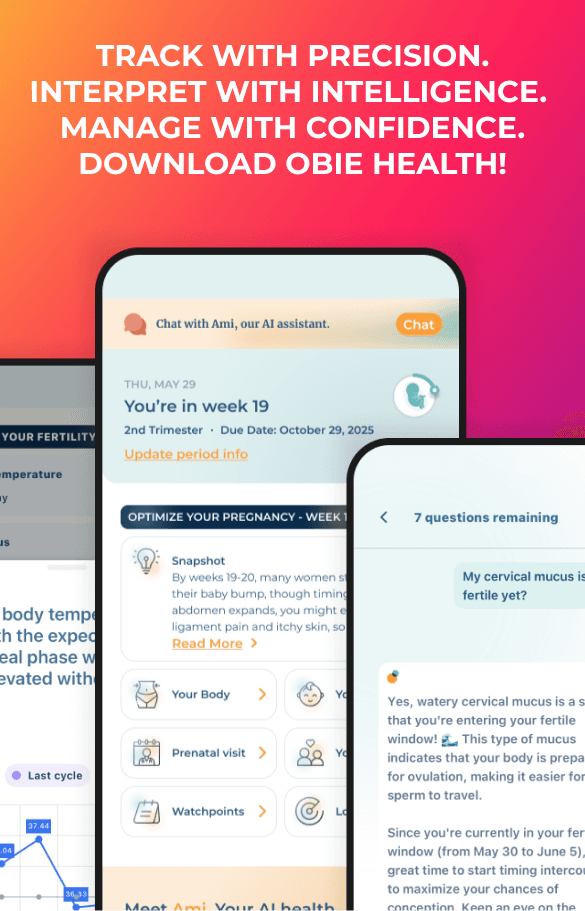Diabetes Mellitus and Birth Defects
Pregnancy News
Obie Editorial Team

If you've been diagnosed with diabetes before pregnancy, take heart. This knowledge equips you to take proactive steps for a healthier pregnancy and to reduce the risk of birth defects, as highlighted by a CDC study published in the American Journal of Obstetrics and Gynecology. Diabetes, whether it is type 1 or type 2, can increase the risk of having a baby with birth defects, including those affecting the heart, brain, spine, kidneys, gastrointestinal tract, and limbs. Becoming aware of these risks allows you to take control and manage your health effectively during this critical time.
The key to empowering yourself and minimizing risks is prioritizing excellent preconception care and early, effective management of diabetes. Dr. Adolfo Correa, lead author and epidemiologist at the CDC's National Center on Birth Defects and Developmental Disabilities advises, "Effective diabetes management before and during pregnancy is crucial. It not only helps in preventing birth defects but also reduces the risk of other health complications for both you and your child."
Interestingly, the study also suggests that some birth defects linked to diabetes happen early in pregnancy, sometimes even before gestational diabetes is diagnosed. This may indicate the presence of undiagnosed diabetes prior to pregnancy. Thus, maintaining awareness and early intervention is paramount.
It is also vital to address pre-pregnancy obesity, which is a known risk factor for both diabetes and birth defects. Enhanced and proactive preconception care can make a significant difference, potentially preventing birth defects and reducing health risks.
The National Birth Defects Prevention Study (NBDPS) draws from the rich and extensive data gathered across nine centers in the United States. This groundbreaking research examines potential causes of birth defects, involving over 30,000 participants, and is the most comprehensive effort of its kind in the U.S.
For context, birth defects affect approximately one in 33 infants and are a major cause of infant mortality. While science has identified a handful of risk factors, there is still much to learn about the root causes of most birth defects.
In the U.S., the prevalence of gestational diabetes has been rising, currently affecting around seven percent of pregnancies, totaling over 200,000 cases per year. Most women resolve gestational diabetes post-delivery, but awareness is key since there’s an increased risk of type 2 diabetes later in life.
To empower yourself with more information about birth defects, visit CDC Birth Defects Facts. For diabetes-related information, resources, and support, check out CDC Diabetes, or reach out to the CDC helpline at 1-800-CDC-INFO.
Remember, knowledge is power, and proactive care is your strongest ally on this journey.







